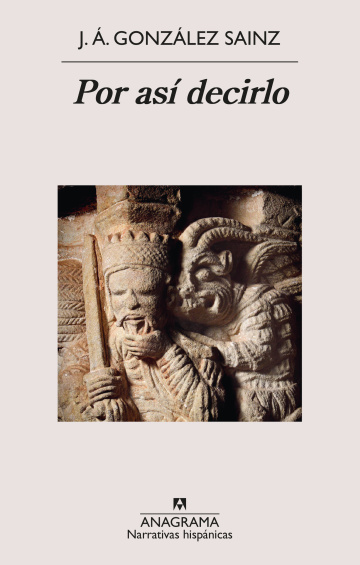| PAGES | 160 |
| SERIES | Narrativas hispánicas |
| PUBLICATION | 10/04/2024 |
El Día de Soria
Heraldo | Diario de Soria
El Norte de Castilla
The Objective | El Subjetivo
EFE
El Cuaderno
ABC Cultural
RTVE | Gente despierta
El Diario Montañés
El Mirón de Soria
El Norte de Castilla
Anika entre libros
Kaos en la red
Zenda | Pedro Plaza Salvati
Zenda | Juan Alberto Vich Álvarez
Ethic
Zenda | José de Monfort
El Boomeran(g)
COPE | La Tarde
PáginasDigital
The Objective

SERIES:Narrativas hispánicas
In the four stories that make up this book, the protagonists are displaced from their comfort zones by some unexpected event.
A man decides to take his family to a classical music concert and is witness to an unusual event when a spectator begins to imitate the movements made by the orchestra director and attempts to replace him. In the second piece, the protagonist prepares to play a peculiar game of dice, and his day becomes disconcerting from the moment he encounters a burly neighbor in the elevator. In the third, the purchase of two small exotic fish whose survival depends on the exact measuring of the temperature of the water turns into the motor behind unexpected transformations. And in the text that closes the volume, the disruptive encounter happens on a train and features two women—mother and daughter?—who appear to be Asian—Chinese, Filipino, Indonesian?—who are traveling in the same car as the protagonist.
With prose that is meticulously precise and a gaze that has been trained to capture the strange things that emerge in everyday life, the author introduces the reader to mysterious territories in which anything can happen….Mishaps, encounters, words, and gestures whose meaning we can’t always decipher. The vertigo we experience in the face of the unknown condensed into four stories.
“González Sainz—like Ferlosio, Benet, Pombo, Gándara, or Gopegui—has created an ambitious narrative, with no reference points to other contemporary Spanish writers.” —J.A. Masoliver Ródenas, La Vanguardia
“A master of language who is less prolific than we would desire.” —Jon Juaristi, ABC
| PAGES | 160 |
| SERIES | Narrativas hispánicas |
| PUBLICATION | 10/04/2024 |
El Día de Soria
Heraldo | Diario de Soria
El Norte de Castilla
The Objective | El Subjetivo
EFE
El Cuaderno
ABC Cultural
RTVE | Gente despierta
El Diario Montañés
El Mirón de Soria
El Norte de Castilla
Anika entre libros
Kaos en la red
Zenda | Pedro Plaza Salvati
Zenda | Juan Alberto Vich Álvarez
Ethic
Zenda | José de Monfort
El Boomeran(g)
COPE | La Tarde
PáginasDigital
The Objective


J.Á. González Sainz was born in Soria (1956) and currently lives in Trieste (Italy). He has also lived in Barcelona (where he graduated in Philology), Madrid and, for almost twenty years, in Venice. He earned the Premio de las Letras de Castilla y León in 2006, an award that had previously been given to, among others, Carmen Martín Gaite, Luis Mateo Díez, Torrente Ballester and Miguel Delibes.







